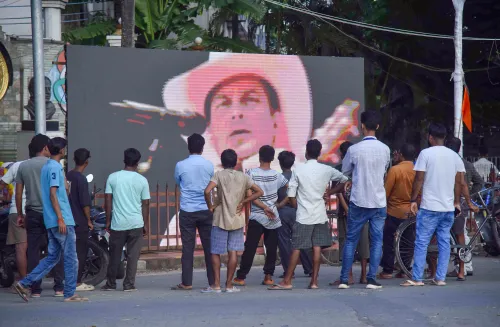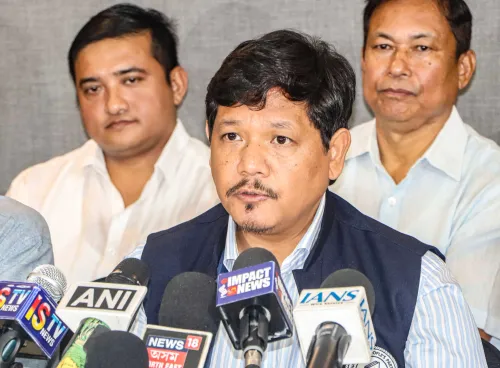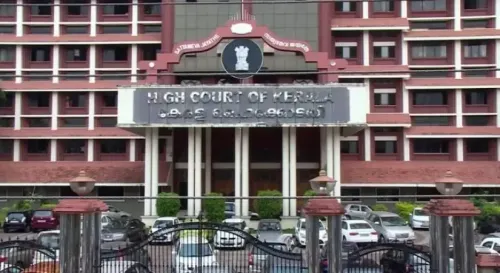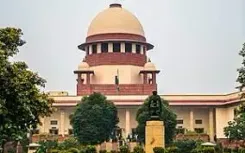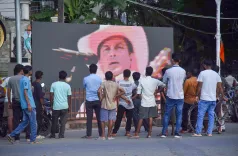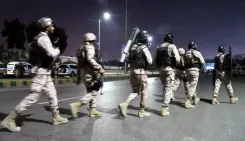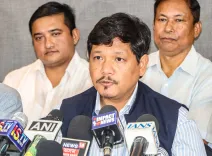Political Dynamics in Tamil Nadu May Transform Following PMK's Proposition to DMK
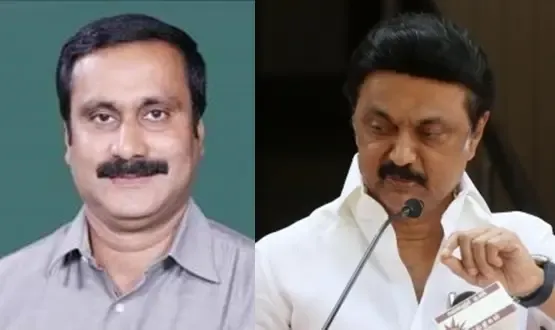
Chennai, Dec 25 (NationPress) The PMK, the political arm of the significant Vanniyar community, has proposed its backing for the DMK government if it enforces a 15 per cent internal reservation for the Vanniyar community within the Most Backward Class (MBC) quota.
This initiative has the potential to drastically reshape Tamil Nadu’s political framework. Currently, the PMK is allied with the BJP as part of the National Democratic Alliance (NDA).
The president of PMK, Anbumani Ramadoss, recently declared that his party would extend unconditional support to the DMK in the upcoming 2026 Assembly elections if the reservation is enacted.
He emphasized that the PMK will not seek any seats for contesting as part of this coalition. Presently, Tamil Nadu has a 69 per cent reservation policy, which allocates 30 per cent for Backward Classes, 20 per cent for Most Backward Classes, 18 per cent for Scheduled Castes, and 1 per cent for Scheduled Tribes.
The PMK contends that following the Supreme Court's endorsement of the Arundhathiyar sub-quota within the Scheduled Castes category, a similar internal reservation should be granted to the Vanniyar community.
The Vanniyar community, predominantly found in northern Tamil Nadu, holds substantial political sway.
A partnership between the PMK and DMK could enhance the ruling party’s prospects in the 2026 Assembly elections, potentially leading to a decisive victory.
In the 2024 Lok Sabha elections, PMK candidate Sowmiya Anbumani contested in the Dharmapuri constituency, finishing in second place. She was defeated by DMK’s A. Mani by a margin of 21,300 votes. Sowmiya, the spouse of PMK president Anbumani Ramadoss, received 4,11,367 votes, while Mani secured 4,32,667 votes. AIADMK candidate Dr R. Asokan came third with 2,93,629 votes.
The PMK contested 10 seats in the 2024 Lok Sabha elections, achieving a 4.33 per cent vote share across the state.
Ramadoss stressed that the internal reservation for the Vanniyar community transcends mere caste considerations and is fundamentally a question of social justice. He noted that numerous members of the Vanniyar community live in dire poverty, engaged in low-wage occupations such as road construction and bricklaying.
He asserted that an internal quota is crucial for their educational and professional advancement. He further criticized the DMK government for its apparent reluctance to conduct a caste-based census in Tamil Nadu.
According to him, such a census would unveil “harsh truths” and prompt demands for proportional representation in electoral constituencies based on demographic size. Ramadoss also pointed out that several other states in India have successfully completed caste-based censuses as part of their dedication to social justice.
The Vanniyars are a prominent community in Tamil Nadu, especially in the northern districts. Historically categorized as Backward Class, they were reclassified as Most Backward Class following a succession of successful movements in the 1980s.
This shift by the PMK aims to secure enhanced educational and employment opportunities within the state’s reservation framework. If the DMK moves forward with the 15 per cent internal reservation for Vanniyars, it could instigate a political realignment in Tamil Nadu.
A PMK-DMK alliance would furnish the DMK with a robust support base in northern Tamil Nadu, reinforcing its position in the 2026 Assembly elections and potentially extending its governance in the state.

